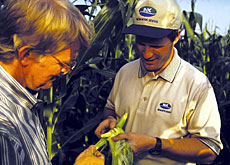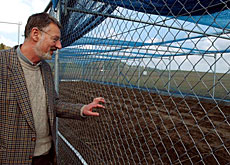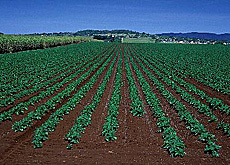EU set to approve Syngenta GM maize

The Swiss-based agrochemicals group, Syngenta, could soon be allowed to sell its genetically modified (GM) maize in Europe for human consumption.
The European Commission said on Monday it expected to grant approval for the Bt-11 maize in the next two months.
“It is difficult to predict exactly, but I would imagine this will be before the Commission in late May or early June,” said the EU’s health commissioner, David Byrne.
“… Once these foods are authorised [they] will be able to go on the market and I expect the member states to respect the laws of the EU,” he added.
His comments came after the EU’s 15 agricultural ministers failed to reach an agreement on lifting a six-year ban on GM crops.
A final decision will now be taken by the European Commission, which said in January it was in favour of lifting the moratorium on new biotech crops.
The European Commission has the legal power to rubber-stamp a request for imports of Bt-11.
However, it was not immediately clear how soon it would act. “We don’t know how long it will take,” said EU spokeswoman, Beate Gminder.
Sweetcorn
The EU farm ministers were voting on an application by Syngenta, the world’s biggest agrochemicals group, for its Bt-11 sweetcorn to be sold for human consumption.
France, Portugal, Austria, Luxembourg, Greece and Denmark stuck to their previous “No” votes, while Belgium, Germany and Spain abstained.
Italy, Britain, the Netherlands, Ireland, Sweden and Finland voted in favour of selling the corn commercially.
Syngenta’s Bt-11 proposal is the first of about 34 applications to start working its way through a new approval process since EU governments enacted strict labelling and traceability rules for products with genetically modified ingredients earlier this month.
Human health
Despite the new labelling law, environmentalists continue to oppose the use of GM crops, arguing that they cause damage to both the environment and to human health.
“There are too many question marks hanging over this food,” said Geert Ritsma from the non-governmental organisation, Friends of the Earth.
But Syngenta welcomed the outcome of the EU ministerial meeting.
“We are looking forward to the EU process progressing in the interests of consumer choice and technological innovation,” said Michael Stopford, head of public affairs at Syngenta.
“Of course we’re thoroughly convinced that our product is safe,” he added.
Switzerland, which is not a member of the EU, gave the green light last year for GM crops to be planted, on condition that non-GM crops were protected from cross-fertilisation.
A field trial is currently being conducted to examine the precise effects of GM crops on the environment.
swissinfo with agencies
On January 28 the European Commission voted in favour of selling Bt-11 maize in Europe.
A law requiring strict labelling and rules on tracing products was introduced in the European Union on April 18.
France, Portugal, Austria, Luxembourg, Greece and Denmark voted against the commercialisation of GM maize.
Italy, Britain, the Netherlands, Ireland, Sweden and Finland were in favour.
Syngenta was formed in 2000 from the merger of the agrochemicals units of Novartis and Astrazeneca.
It sells pest-control products and is one of the world’s leading seed suppliers.
It has doubled its earnings growth forecast for the year after reporting better-than-expected first-quarter sales growth.

In compliance with the JTI standards
More: SWI swissinfo.ch certified by the Journalism Trust Initiative



You can find an overview of ongoing debates with our journalists here. Please join us!
If you want to start a conversation about a topic raised in this article or want to report factual errors, email us at english@swissinfo.ch.